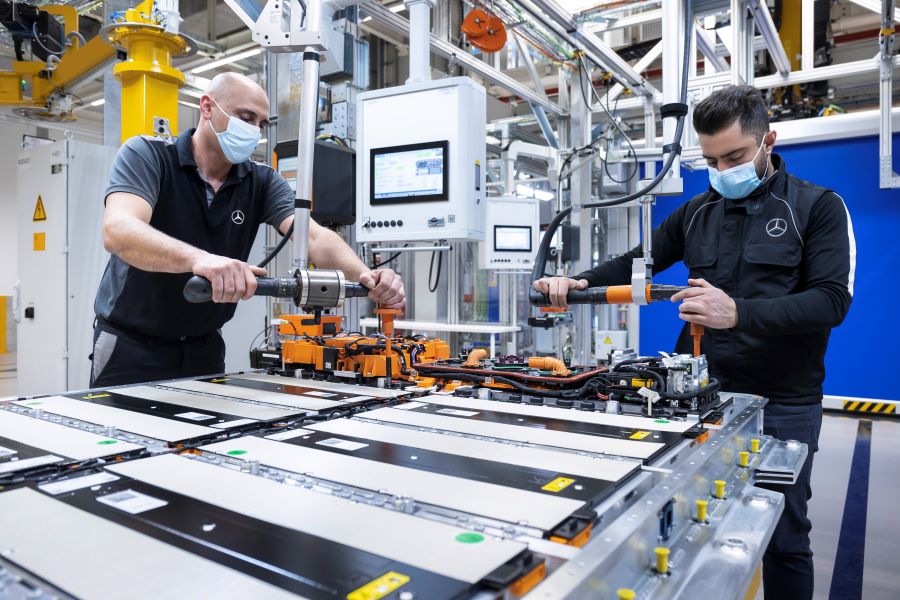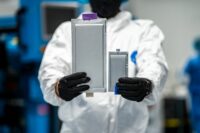SAN JOSE, CA—Additive manufacturing has transformed many industries, ranging from aerospace to medical devices. Now, it could help solve the battery production puzzle. A Japanese-backed company called Sakuu Corp. claims that it has developed an industrial-grade printer that can mass-produce solid-state batteries.
“The breakthrough technology will unlock the mainstream adoption of EV and e-mobility vehicles by solving the previous issues of cost, performance, sustainability and range,” claims Robert Bagheri CEO of Sakuu. “For the e-mobility markets, we believe this to be a landmark achievement, and one that could transform consumer adoption of electric vehicles.”
According to Bagheri, solid-state batteries “use around 30 percent to 50 percent fewer materials” than traditional lithium-ion batteries. They also have the same capacity, yet are half the size and almost one-third lighter.
“Solid-state batteries are a ‘holy grail’ technology, but they are both very difficult and expensive to make,” explains Bagheri. “By harnessing the flexibility and efficiency enhancing capabilities of our unique and scalable additive manufacturing process, we’re enabling battery manufacturers and EV companies to overcome these fundamental pain points.
“Furthermore, by adopting it as the technology of choice, these users also benefit from the wider opportunities our platform delivers—namely, the ability to enjoy on-demand, localized production, which can help drive more efficient manufacturing operations and shorter supply chains,” says Bagheri.
Sakuu’s line of KeraCel printed batteries will be produced with what the company claims is “the
the world’s first and only multimaterial, multiprocess 3D printer,” dubbed the Sakuu AM Platform.
The machine blends powder bed and jetted material deposition, and uses completely different materials in a single-layer capability. The process combines ceramic and metal, as well as Sakuu’s proprietary support material, PoraLyte, which removes part overhang limitations and enables the easier and faster creation of devices with internal channels and cavities.
“The result is a solution that eradicates the shortfalls inherent with existing alternatives—typically low energy density sold-state batteries that are unsuitable for high-volume production and characterized by thick, brittle ceramic layers and poor interface,” notes Bagheri. “Instead, [our] additive manufacturing platform delivers higher energy density batteries with thin monolithic layers and perfect interface.
“With only half the material requirement and a ‘powder to powder process’ that ensures easier recyclability of the ceramics and metals by conventional methods, KeraCel solid-state batteries score much higher when it comes to sustainability,” claims Bagheri. “There is no requirement to extract graphite and the absence of polymer means no incineration or burial in landfill.”
Sakuu initially plans to focus on the two- and three-wheel EV market.



